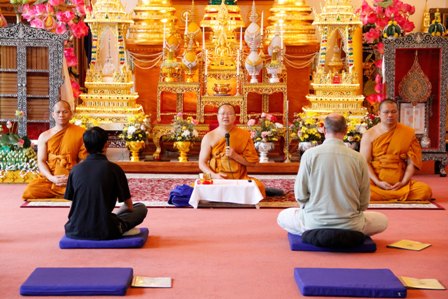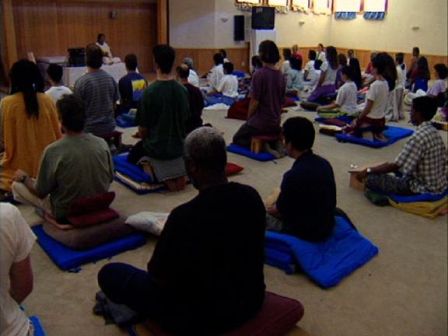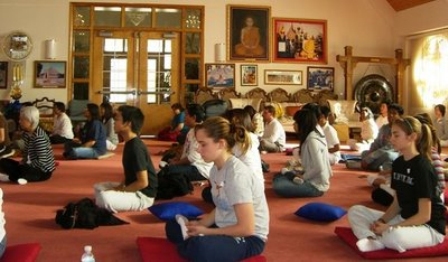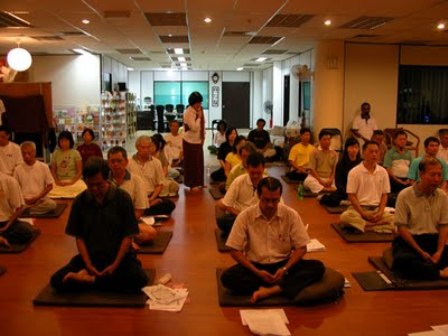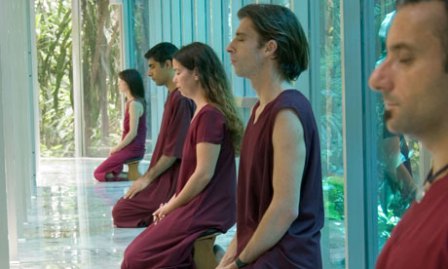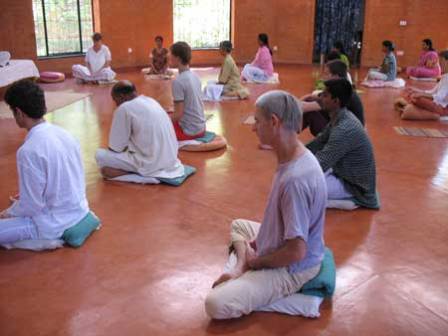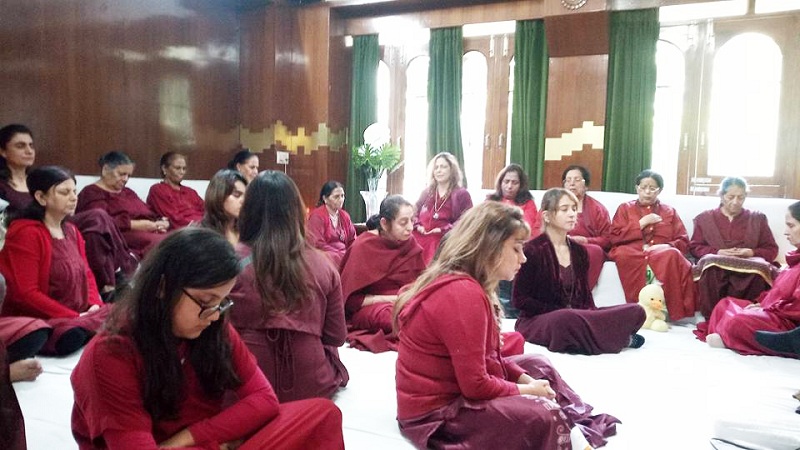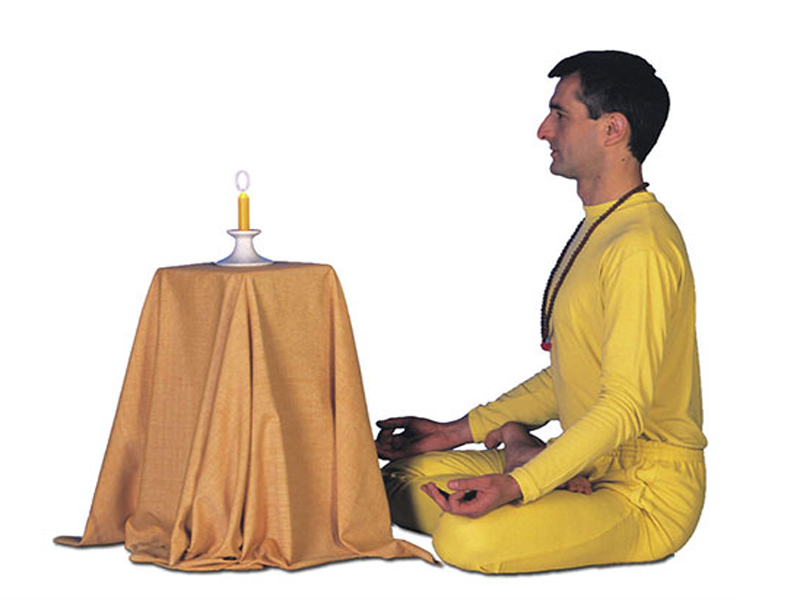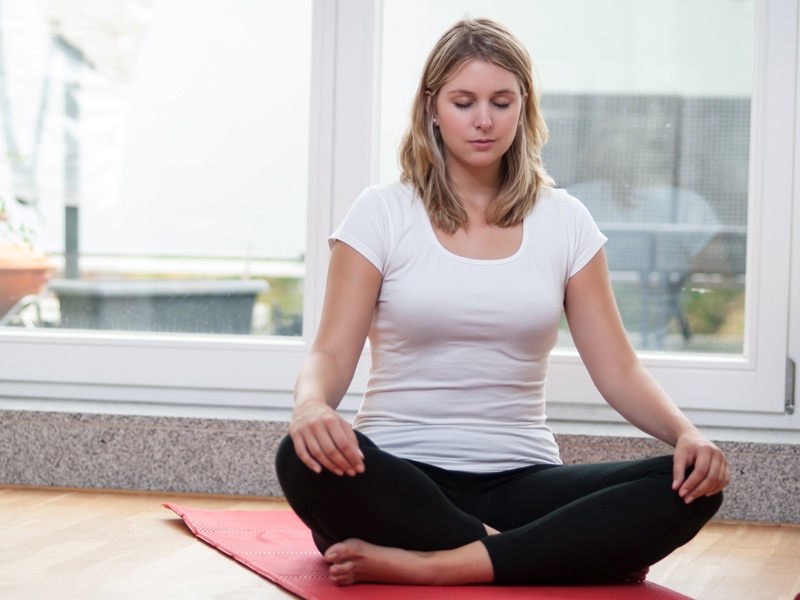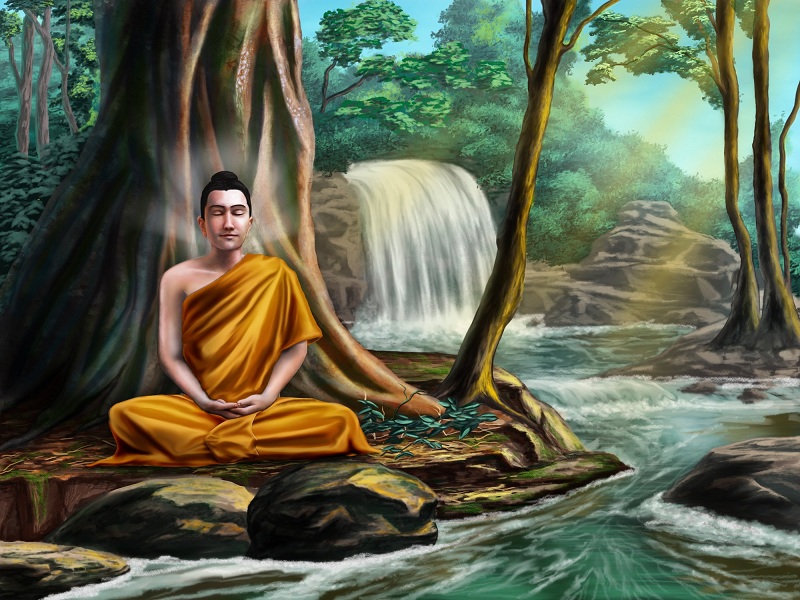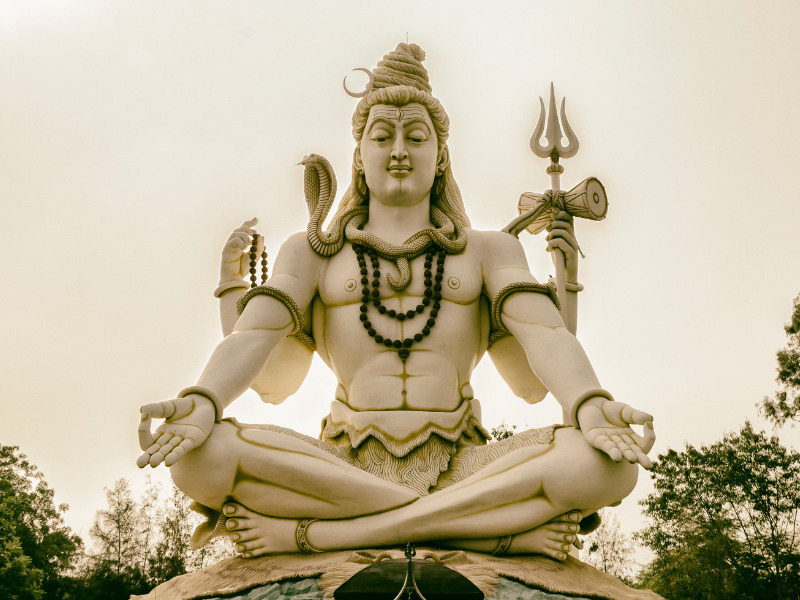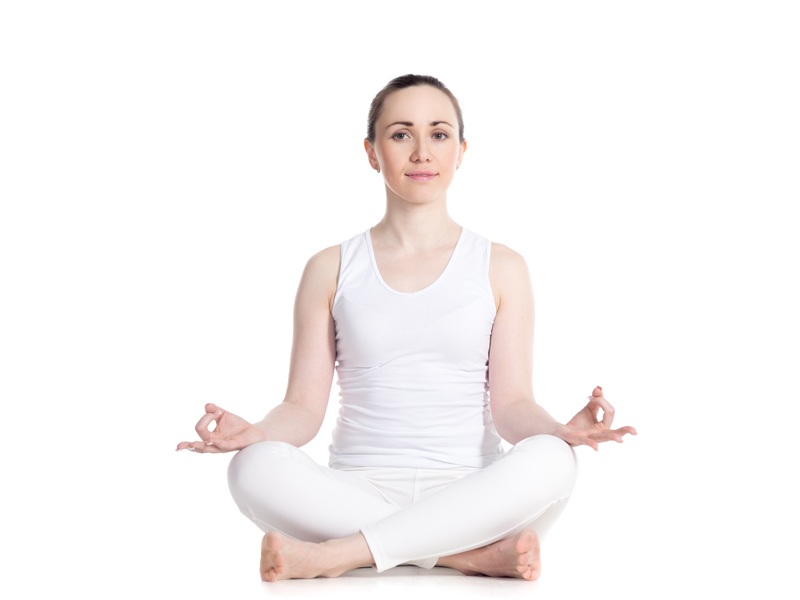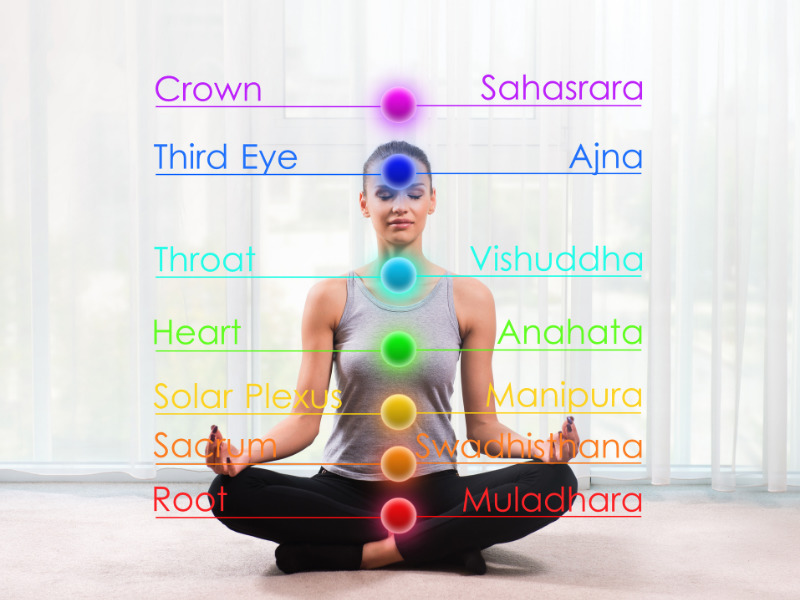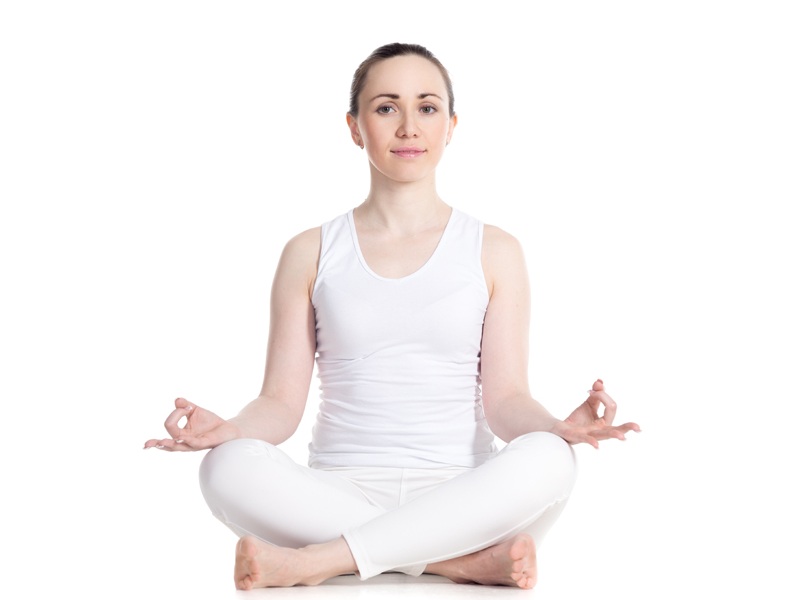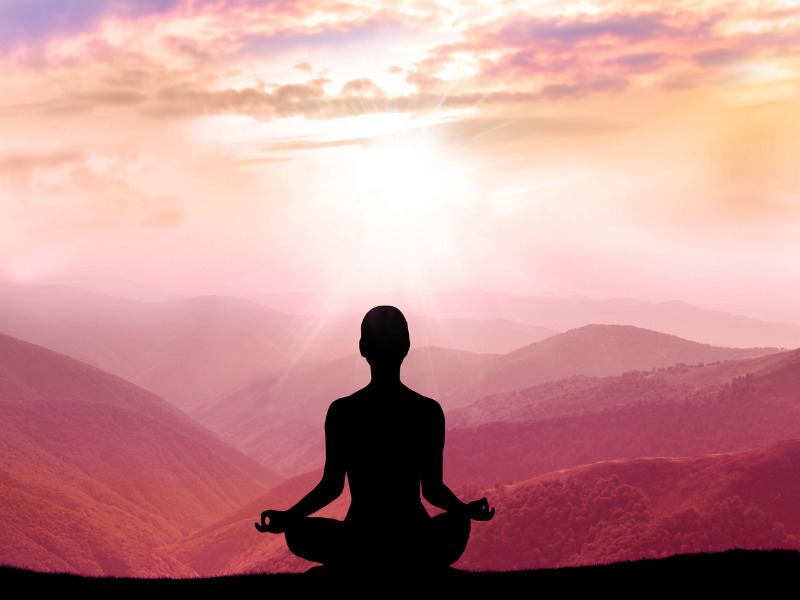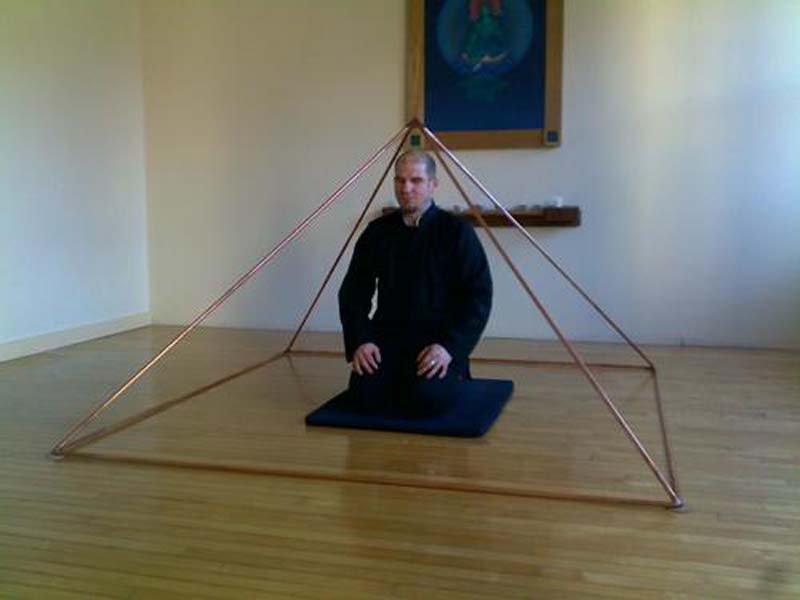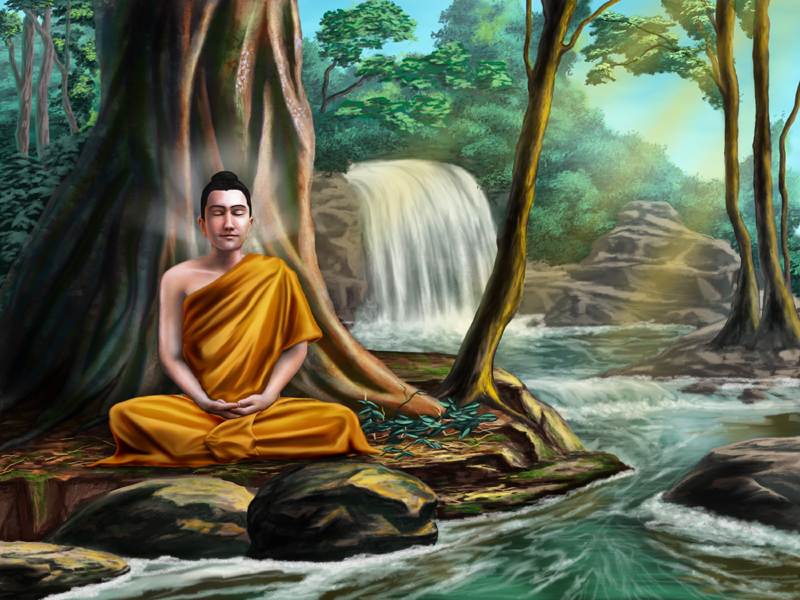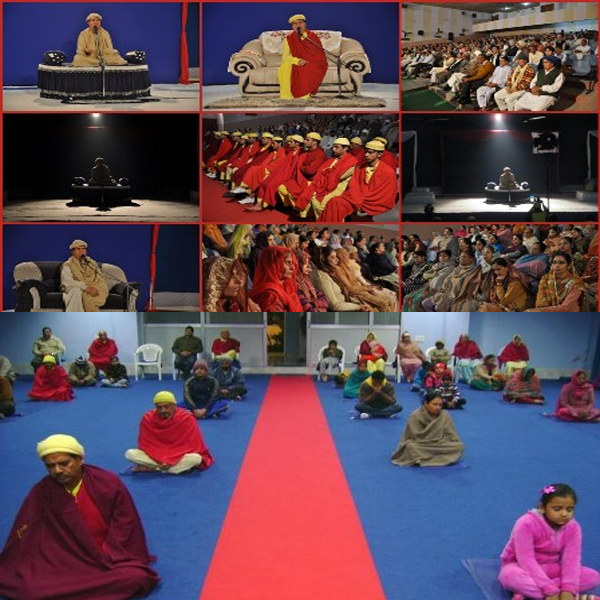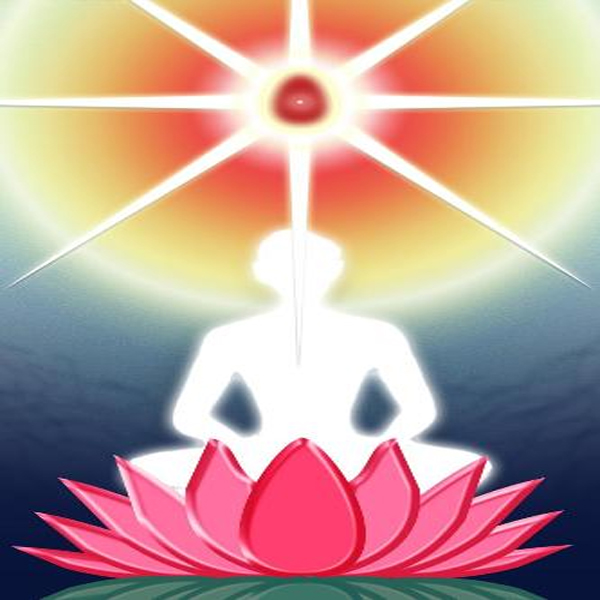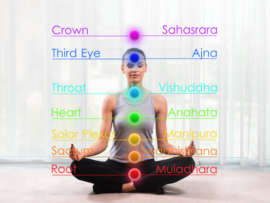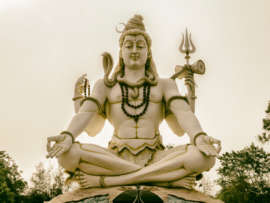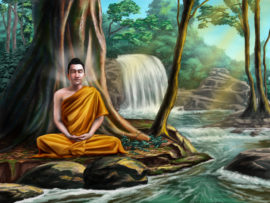Vipassana is an ancient meditation technique that was taught by Gautama Buddha thousands of years ago. It is about insight meditation and observing things closely. It helps you confront reality and know yourself in a better way. This kind of meditation is definitely not some kind of religion; it can be used by anybody and everybody. Its motto is to free you from all kinds of pain and sufferings.Learning Vipassana meditation technique enables you to focus on just one item and prevents your mind from drifting into diversions. It makes the mind attentive to all the processes and changes happening in your body and enables an increased awareness of your body.
What is Vipassana Meditation?
Said to have taught by Gautam Buddha himself, Vipassana is one of the ancient meditation techniques. It is different from the other forms of meditation like Samatha in terms of technique and focus area. While the other meditation focuses on bringing inner calm and tranquillity, Vipassana aims to bring insight to self. Normal meditation uses the technique of focussing on certain object, sound or prayer to help in concentration. Vipassana on the other hand aims to cut off from all the thoughts that makes you mind wander aimlessly. This technique aims to make you fully aware of yourself, including every single change that happens in your body.
Benefits Of Vipassana Meditation:
Practising Vipassana regularly can help you cut off from negativity and life a life that you are truly aware of. It helps you realise the purpose of your existence and make you aware of reality. The following are some of the benefits of Vipassana Meditation:
- Developing better rationality in thought process
- Reducing mental stress
- Alleviating the desire of material wants
- Higher concentration levels
- Attention to details
- Living closer to reality
- Appreciation of the present times
- Making more meaningful discussions
Vipassana Meditation Techniques:
Before you learn how to do Vipassana meditation, you need to understand that Vipassana has two different stages, for the beginner and the advanced and because of its benefits; Vipassana has become one of the most popular meditation techniques in the world today. The basic understanding and outline of Vipassana has been described in this particular article.
1. Five Principles:
Vipassana has five basic principles that you must follow.
- First, abstain from killing any living organism.
- Secondly, stay away from stealing.
- Third, sexual misconduct should be absolutely prohibited.
- Fourth, make sure you are not using the power of language in wrong ways.
- And finally, no intoxicants shall be tolerated.
See More: Zen Meditation Techniques
2. When Should You Meditate?
- You should meditate for about one hour in the morning and one hour in the evening.
- Also, five minutes before you fall asleep and after you wake up in the morning.
- If it is possible for you, do this meditation with other meditators just once a week.
3. Sit Down First:
- The first step you need to take while practicing Vipassana is to sit down on a chair or the ground.
- Make sure you are comfortable.
- Keep your spine straight and allow the energy to flow.
- This is how a beginner should start their meditation.
4. Begin From the Top:
- Start from your head.
- Observe your breathing for a few seconds.
- After some time, you can start scanning the neck area.
- From there you should turn towards your right shoulder, forearm, hands and back.
- After you are done with that, start scanning the front and back torso.
- With this, you can continue with the rest of your body. Make sure you finish from where you started.
See More: Tratak Meditation Benefits
5. Be a Neutral Observer:
- In Vipassana, it is important for you to observe every single thing.
- Every itch, pain or numbness that you feel should not be avoided.
- There is no sensation that is less or more important.
- All of them are worth noticing. So make sure you develop a good sense of observation.
6. Do Not Jump:
- While you are scanning every area of your body, make sure you are not jumping from one are to the other as every single part of your body does not respond or reciprocate the same way.
- There are some areas where you might get simple sensations and, in some others,, it might get stronger.
7. Continue:
- One important tip for doing Vipassana diligently is doing it continuously.
- Don’t be discouraged by any temporary setbacks.
- With every little step, you will be able to achieve serenity, calm, peace and tranquillity.
- Don’t be too overwhelmed by sensations.
8. Frequently Used Terms:
There are quite a number of terms that are very frequently used in Vipassana Meditation.
- Some of them are Samadhi (concentration), panna (wisdom), sila (morality).
- The others being Buddha, Dhamma and Sangha.
- These are quite common and are used in Vipassana quite often.
- A follower of this practice should be aware of these terms.
See More: How To Do Raja Yoga Meditation
9. Tell Others:
- You can always tell others about Vipassana but you can never really teach them.
- If you do that, it might lead to some major confusion.
- You can always encourage them to join a meditation class or course where they will receive proper guidance and learn the techniques well.
Vipassana takes years to perfect. Unlike meditation, Vipassana is a permanent change in your self that you can achieve only through rigorous practise and an abundance of patience. It is like passing through a rocky wall to see the light. Once you train your mind through drill through the wall, you will achieve a state called Liberation. Liberation is the ultimate attainment of mind that is free from materialistic thoughts. It is a life changing experience that one need to only experience to understand it.



